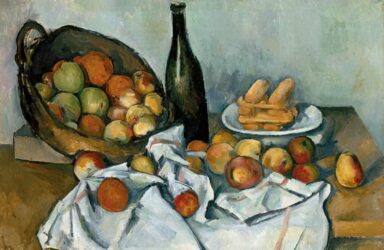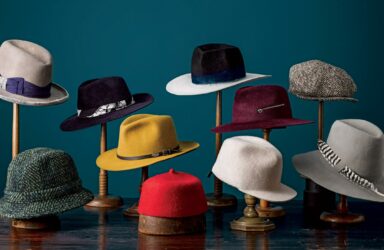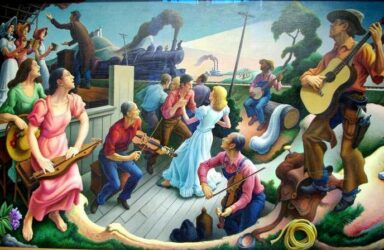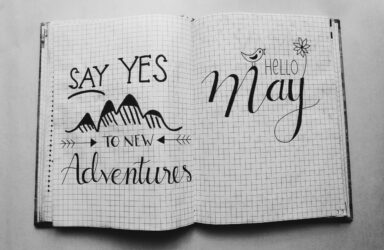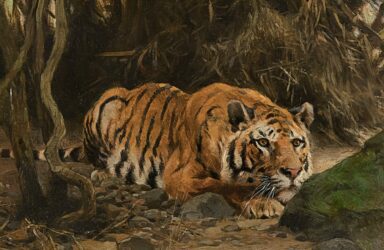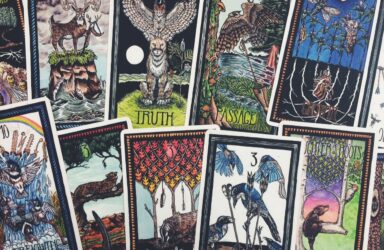Private Writing Courses
Learn Online at your Own Pace
If you want a setting more intimate than a group class, we offer private courses, allowing you a private learning environment and self-paced progress through the material.
A private course allows you to conveniently fit a course's written lectures and assignments into your life. Your teacher will offer feeedback on each assignment you turn in, in addition to fielding any questions that arise.
We encourage you to take a group class if you can: not only is it less expensive, you'll benefit from feedback given to and received from others in the class. But when a group class doesn't work in your life, private classes can be the perfect alternative.
Can't find the right class? Write to us at writers@writers.com and we'll try to match you with a class or teacher to meet your needs and goals.
A thousand reasons exist to procrastinate. Let Writers.com guide you towards your goals instead.
Which Courses we Offer Privately
With a few exceptions, most of our courses can be taken privately at any time, depending on the instructor's availability. If you're curious about taking a certain course in private, contact at writers@writers.com or through our contact form.
Private Course Costs
Private sessions cost $100 plus the public course fee. So, a course that would normally cost $460 would cost $560.
Private-Only Courses
Unscheduled Courses
*Private Class | Embodied Writing: Improve Your Writing with Full-Body Creativity
with Rosemary Tantra Bensko
Have a grand time with specific physical exercises that honor your health, generate imaginative ideas, explore deeply and make your creative writing entertaining.
Creative Nonfiction, Fiction, Memoir, Novel, Personal Essay, Short Story
*Private Class | Embodied Writing: Somatic Practices to Improve Your Work
with Rosemary Tantra Bensko
Have a grand time with specific physical exercises that honor your health, generate imaginative ideas, explore deeply and make your creative writing entertaining.
Creative Nonfiction, Fiction, Memoir, Novel, Personal Essay, Short Story
*Private Class | Finding Confidence in the Braided Essay: A Craft and Empowerment Workshop for Literary Nonfiction
with Margo Steines
Weaving your story with facts and research can help you craft a stronger essay. Tell your story with confidence in this empowering essay writing course.
*Private Class | Food Writing: Meals And Manuscripts
with Jennifer Billock
Do you love cookbooks, cooking, or reading anything about food? This food writing course is for you. With award winning writer Jennifer Billock.
*Private Class | From Pitch to Publication: Writing Narrative Journalism
with Rudri Patel
Explore literary journalism as a powerful means to share fascinating characters, stories, and perspectives. Learn all you need to start pitching, landing, and writing reported essays and features.
*Private Class | Introduction to Writing Genre Fiction
with Rosemary Tantra Bensko
Take the whirlwind tour! Learn the conventions of eight major fiction genres, try them out, and figure out your niche.
*Private Class | Poetry Workshop: Bring Your Poems to Life
with Rosemary Tantra Bensko
Join us for this workshop on creating powerful poems—poems that are clear and organized, fresh and moving, full of life.
*Private Class | The Craft of Poetry
with Jonathan J.G. McClure
Poetry is alive and well. Contemporary poets can be touching, terrifying, and laugh-out-loud funny. Join us for an exploration of writing and reading poems.
*Private Class | The Literary Essay
with Jonathan J.G. McClure
Explore the literary essay - from the conventional to the experimental, the journalistic to essays in verse - while writing and workshopping your own.
*Private Class | The Micro-obstacles/Flow Technique
with Rosemary Tantra Bensko
Create new work with fresh language, universal themes, sustained mystery and memorable characters. Stimulate your imagination.
*Private Class | Using Bullet Journaling to Achieve Writing Goals
with Rudri Patel
Looking to keep your writing goals organized? Make it happen in our bullet journaling course. Learn the art of the BuJo with Rudri Patel!
Creative Nonfiction, Fiction, Lifestyle and Wellness, Memoir, Novel, Personal Essay, Poetry, Short Story, Stage and Broadcast
*Private Class | Write Your World: Express Your Creativity through Article Writing, Blogging, and Essays
with Rudri Patel
Want to write your world, your way? Join us for this six-week program on article writing, blogging, and essays.
*Private Class | Writing Our Grief: How to Channel Loss into Creative Expression
with Rudri Patel
Writing about grief is a powerful healing tool. Turn pain into power in this personal essay course, with instructor Rudri Patel.
*Private Class | Writing the Short Story
with Rosemary Tantra Bensko
Create new work with fresh language, universal themes, sustained mystery and memorable characters. Stimulate your imagination.
*Private Class | Writing with Tarot
with Sandra Novack
Jump-start your creative juices, and explore a world of divination, symbolism, and imagery right at your fingertips: learn short story and novel writing through Tarot.
Creative Nonfiction, Fiction, Lifestyle and Wellness, Memoir, Novel, Personal Essay, Poetry, Short Story
Plot Threads: How to Structure a Novel
with Jack Smith
Learn how to structure your novel. Gain hands-on practice in plot threads, character arcs, and everything else you need to bring your story to life.
How to Schedule a Private Session of a Public Course
Our courses that have private-only options are listed above. For any other of our courses, if you wish to schedule a private session, email us at writers@writers.com, or contact the instructor through our contact form. Let us know when you'd like to begin the private session of the course that interests you.
After you contact us, we will work with the instructor to schedule the course. Private courses are based on our instructors' availability, so we will do our best to coordinate different schedules, but cannot guarantee that a certain course will be privately available.
Private Courses FAQ
What is the difference between a public and private course?
Public courses include other students, and they often have a group workshopping component in addition to the teacher's instruction. Private sessions are one-on-one with the instructor, allowing the student to get more feedback and ask additional questions.
How long does a private course run for?
Private course can run for up to 4 weeks longer than the public session. So, a private session of Write Your Novel! The Workshop With Jack will run for 10-14 weeks, while the public session runs for 10 weeks. The additional time allows private students to work at a slower pace, if they need it. It also allows for additional time to ask questions and work with the instructor's feedback.
How are private courses conducted?
Private sessions, as well as public sessions, are usually conducted through Wet Ink. You can learn more about how our courses work here. Note: Shadow Writing with Gloria Kempton is strictly email-based. Would you prefer to take a private course via email, Zoom calls, or a different method? Email us at writers@writers.com and we may be able to make those accommodations.
What are the benefits of a private course?
In addition to the extended course time and additional instructor feedback, students take our private courses for the following benefits:
- Confidentiality-you won't have to share your work with anyone other than the instructor.
- Flexibility-private classes can be scheduled around your availability, so you don't have to wait 5 months for the course to start.
- Focus-if you just want to work on your writing, you won't have to workshop other student work.
- Room to Experiment-if you want to experiment with your writing, but aren't ready to show the whole world, private sessions are a low-risk way to try new things and receive helpful feedback.
What are the benefits of a public course?
With the exception of Shadow Writing, all of our courses are offered publicly, at various times of the year. The benefits of public courses include:
- Community-our public courses are a great way to meet writers, make friends, and join a writing community. Many of our students maintain friendships long after the course has ended.
- Creativity-reading the work of other students can help inform your own writing, as student work offers new ideas to play with and new writing styles to try.
- Structure-sometimes, deadlines are the best motivators. The weekly assignments in public courses are a great way to start or maintain a consistent writing habit.
- Workshopping-students are encouraged to give feedback to each other. Not only will you receive student feedback, but you will also learn a lot just by writing feedback for other students, too!
Which Courses we Offer Privately
With a few exceptions, most of our courses can be taken privately at any time, depending on the instructor's availability. If you're curious about taking a certain course in private, contact at writers@writers.com or through our contact form.
Private Course Costs
Private sessions cost $100 plus the public course fee. So, a course that would normally cost $460 would cost $560.



